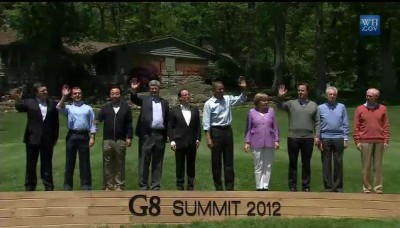 The International Energy Agency (IEA) continues to plug the energy transformation necessary if we are to have any hope of staying within a 2oC rise in global temperature. This month has seen the publication of Energy Technology Perspectives 2012 (ETP 2012) in which they explain the technologies and behaviours that according to the press release “will revolutionise the entire energy system and unlock tremendous economic benefits between now and 2050”. My references to the book’s content in what follows are derived from the executive summary. (The book is priced.)
The International Energy Agency (IEA) continues to plug the energy transformation necessary if we are to have any hope of staying within a 2oC rise in global temperature. This month has seen the publication of Energy Technology Perspectives 2012 (ETP 2012) in which they explain the technologies and behaviours that according to the press release “will revolutionise the entire energy system and unlock tremendous economic benefits between now and 2050”. My references to the book’s content in what follows are derived from the executive summary. (The book is priced.)
ETP 2012 argues that the technologies we already possess are adequate to the task of cutting emissions drastically if used in an integrated way. The resultant overhaul of the world’s energy system by 2050 will not come cheap. Considerable extra investment money will be needed, $36 trillion by their calculation. But that is genuine investment, not cost, and moreover investment with an excellent return of $100 trillion in savings through the reduced use of fossil fuel. Investing in clean energy makes excellent economic sense at the same time as assisting in the mitigation of climate change.

 Fatih Birol, chief economist at the International Energy Agency (IEA)
Fatih Birol, chief economist at the International Energy Agency (IEA)  The section of the recent G8
The section of the recent G8  As US corporate donors
As US corporate donors  An extraordinary op-ed headline caught my eye in the NZ Herald this morning. “Oil and gas reserves can be part of low carbon future.” Professor Basil Sharp, director of the University of Auckland Business School’s Energy Centre and Frank Duffield, an Honorary Fellow at the Centre,
An extraordinary op-ed headline caught my eye in the NZ Herald this morning. “Oil and gas reserves can be part of low carbon future.” Professor Basil Sharp, director of the University of Auckland Business School’s Energy Centre and Frank Duffield, an Honorary Fellow at the Centre,